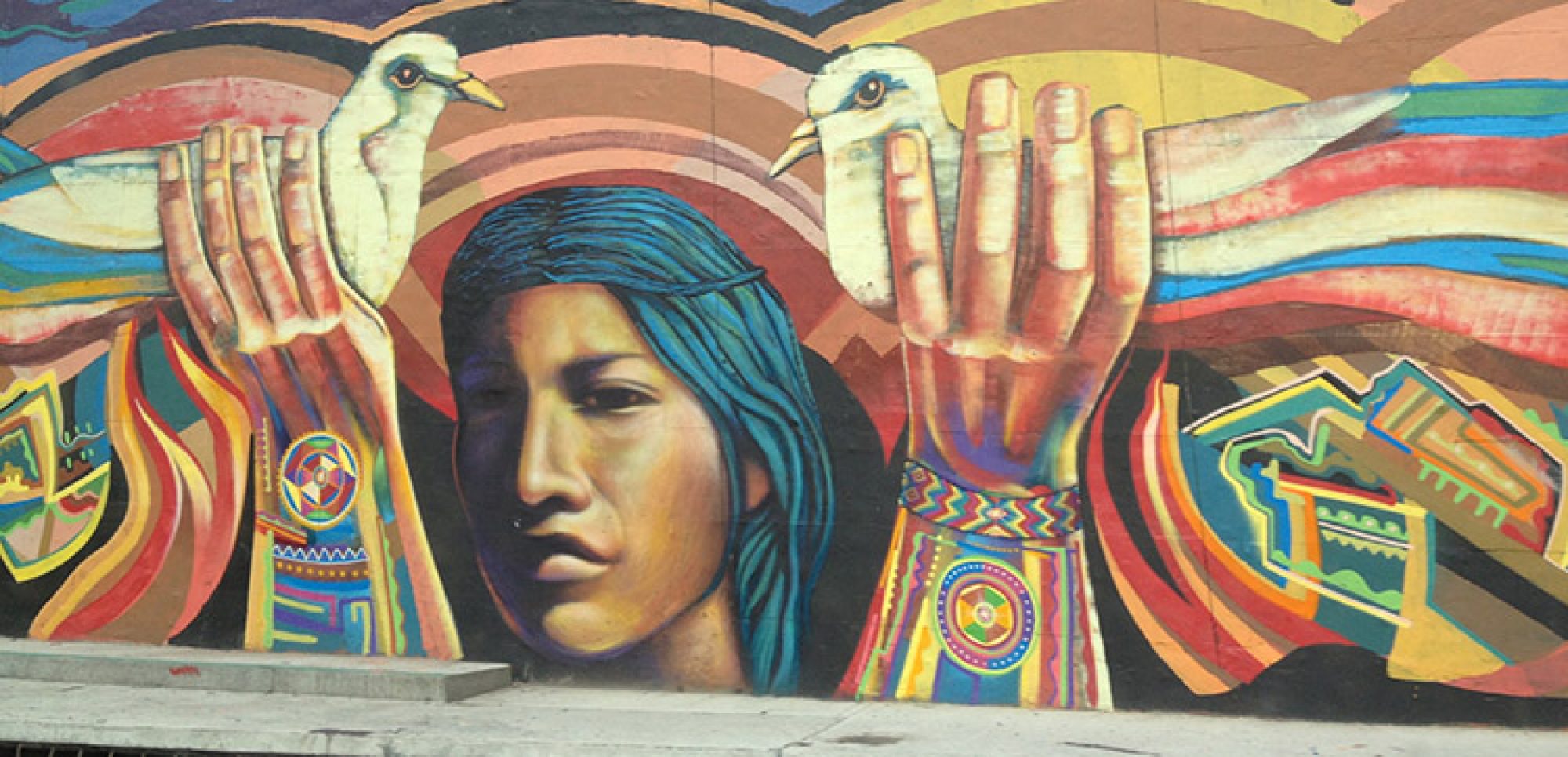This week’s reading/documentary hit home for me as music is a huge part of my life and has been since I can remember! My mom likes to joke that music runs in our family’s blood. My dad’s dad, my Zeide Simon, is a lover of all kinds of art and culture (e.g. literature, music, paintings, etc) and has passed that down to my dad and uncle, who then passed that down to my older brothers, and then to me. Then from my mother’s side, her and my grandmother, Abuela Pirucha, are major fans of more classic Latinoamerican tango, boleros, salsa, and cumbia.
Growing up, my parents would share music from all over the world with us, ranging from American rock (e.g. Jimi Hendrix, Jane’s Addiction, Pink Floyd), grunge (e.g. Nirvana,), soul (e.g. Sade) and country (e.g. James Taylor) to Latin American tango (e.g. Carlos Gardel), folk music (e.g. Mercedes Sosa, Atahualpa Yupanqui, etc), and rock (e.g. Luis Espinetta), and many more. Mixing these musical influences with that of my older brothers’ tastes in music (rap, R&B, neo-soul, alternative rock, lo-fi, trip-hop, etc) my taste in music has become extremely varied over the years.
The more I discover about music, the more I realize how incredible it is. From its complex origins to its ever-changing styles, and powerful uses within society, music is just awesome! As seen in the Moro No Brazil documentary and in the “Peruvian Punk as a Global Means of Underground” article by Sheene Greene, music transforms itself and entire cultures over time.
Further, music serves a very important role in societies – it mobilizes change by spreading widespread sentiments and struggles around particular causes. Musicians are often, directly or indirectly, important advocates for marginalized groups or vulnerable people. For example, Freddy Mercury became a symbol for LGBTQ+ rights and the fight against HIV/AIDS after his death. A more recent example is Kendrick Lamar’s voicing of the struggles of many Black Americans. Then thinking about the role of punk in Peruvian society, we again see that music can be used as a method of rebellion against oppression and injustice. In fact, punk music originated as a counterculture and then became more mainstream mostly as a result of capitalism.
A few years ago I came across a podcast by Radio Ambulante that discussed a group of a Cuban punk group called Los Frikis that injected themselves with HIV in the mid-90s in rebellion against Fidel Castro’s regime. The group claimed that by making themselves sick with HIV they would then be able to enter sanatoriums, which they believed provided better living conditions and resources than their lives on the street. They believed this would serve as a form of civil disobedience. In this case, the music served to bring a group of people with common struggles together. Further, it empowered a marginalized group of people to mobilize and fight against “the man”. This is pretty powerful! Here’s a Vice documentary on this topic if you’re interested:
Discussion question: Do you think music has the power to change societies? If so, how? If no, why not?

Wow amazing post! Thank you so much for sharing this video. Part of my family is from Cuba, but I never heard about this.
I also feel like music is a huge part of my life. When it comes to my family, music always unites people. I remember seeing the adults getting drunk and singing, playing, and dancing Bossa Nova or Samba at family celebrations in my childhood. This united them and made them happy even when they were facing challenging moments in life. And in my Cuban family, music always made sure people kept roots in their first home. Music shapes our identity. Only for this it is already powerful.
In terms of promoting changes in society, I am confident music plays a central role. Although literature and art can also play important roles, I feel music has the power to reach more people. It is more accessible, and it can, in simple 3 minutes, touch people’s hearts.
Music has the power to change society. For example, during the Brazilian dictatorship, music defied censorship, criticizing and denouncing the government’s abuses. Moreover, it demanded an end to the dictatorship. For example, music such as “Pra Não Dizer Que Não Falei das Flores” from Geraldo Vandre has had a significant impact, genuinely encouraging people to go to the streets to protest. The music refers to people who “believe flowers can win cannons,” and it says “who knows ‘makes’ the time and does not wait for it to happen” (this was a terrible translation, sorry). But this is calling people to end the dictatorship. What I am trying to say is that music appeals to people’s emotions which is necessary to empower people to demand change.
Moreover, in ‘normal times,’ music can challenge conservative and oppressive social norms. It can slowly change people’s minds. So, yes, music has the power to change society.
Hey Magalee- awesome post!
Depending on how you define change, I think music undeniably has the ability to do so in societies. From dictatorships, war-times, civil rights movements and more, music has played a fundamental role in uniting , motivating, moralizing, and mobilizing people and societies. The ability of music to bind generations, to reflect and comment on the economic, political and social environments from which it is created, and to cross borders and oceans, illuminate the societal power it holds. Songs can change the way people think and feel, and I think that on both these individual and collective levels, music transforms social landscapes.